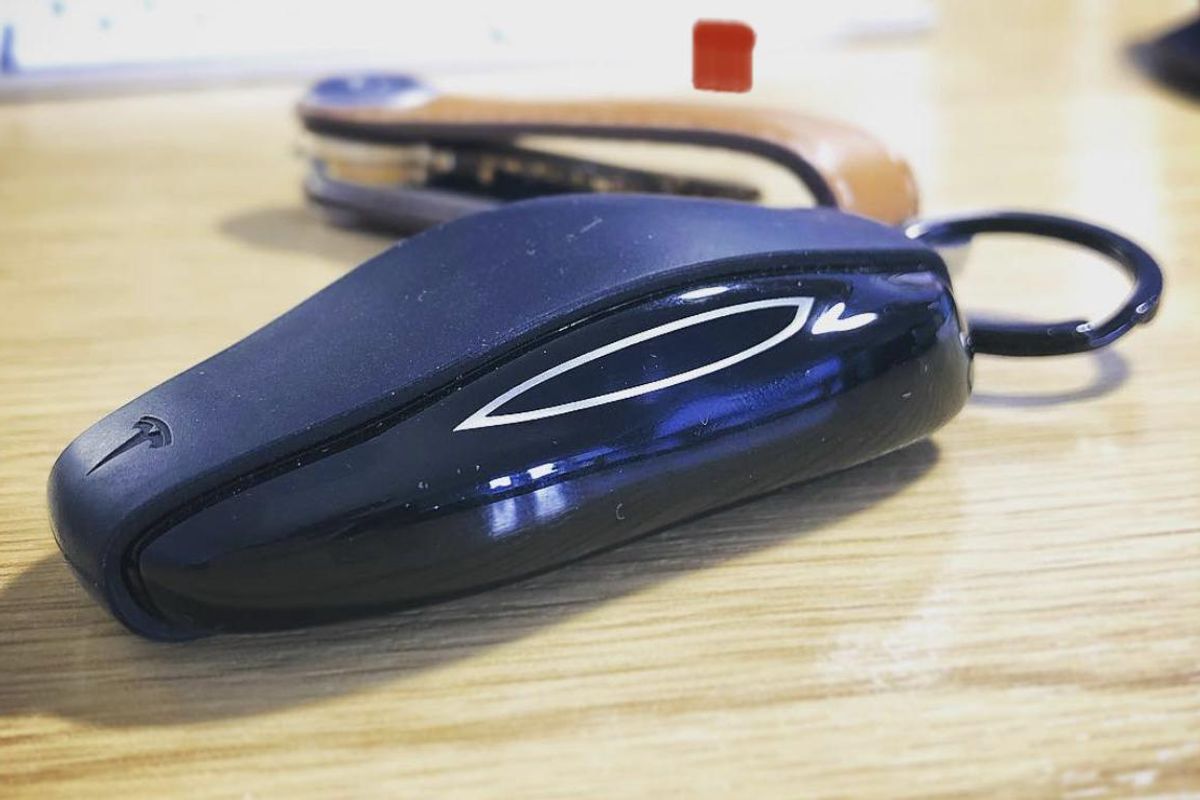
GearBrain
Tesla is looking at ultra-wideband key fob tech; here is why other automakers should too
Ultra-wideband technology could be the key, literally, to improving car security

Ultra-wideband technology could be the key, literally, to improving car security
We have written recently about how Apple and Samsung are starting to use ultra-wideband (UWB) technology in their smartphones, speakers and other accessories. Now, it looks like Tesla is also getting involved with the new wireless tech.
According to an FCC filing submitted on January 11, 2021, the electric car maker is looking at the prospect of using UWB technology in its key fobs.
Read More:
This, Tesla says, would dramatically improve the security of its vehicles and make them "immune" to so-called relay attacks. This is where the signal emitted by a nearby key fob, potentially inside the owner's home, is replicated by thieves stood outside and used to unlock and steal a vehicle without possessing the key. Relay attacks have led to many car thefts in recent years and prompted Tesla to add the option of requiring a PIN before its cars can be driven.
The new UWB-equipped key fob is detailed in the operational description of an FCC filing by Tesla. This document was initially available to view publicly, but has since been removed. However, it can be viewed on Scribd here, via Electrek.
Tesla notes in the document how UWB technology is used to accurately measure distance between two devices using radio waves. Apple is using this technology to recognize when an iPhone and HomePod mini speaker are close to each other, then ask if the users would like to transfer music playback from one to the other.
For Tesla, this precise measurement could see a future key fob unlock the car only when it is close by, preventing relay attacks. Tesla says the technology would not underestimate the distance between a car and its UWB-enabled key fob, thus preventing the car from being unlocked by a replicated key signal sent by a potential thief using a relay attack. In those cases, the car is tricked into thinking its key fob is closer than it really is.

The Tesla document says: "The distance estimate is based on a Time of Flight measurement, and is immune to relay attacks."
The FCC filing includes references to six new products proposed by Tesla. Rather than new vehicles, these include a pair of key fobs, a security controller, and other components installed in the car to make the UWB system work.
Furthermore, being based on the UWB standard we suspect Tesla's new key fob technology will work with other UWB devices, like smartphones. Currently, Apple and Samsung both sell smartphones with integrated UWB technology. BMW has also stated its intention to use UWB for vehicle unlocking via the driver's nearby smartphone.
Called Digital Key Plus, the system will launch on the BMW iX electric SUV later in 2021, before likely rolling out to other BMW vehicles. BMW's current Digital Key system uses NFC to allow unlocking of a car with an iPhone or Apple Watch. Given Tesla isn't the only manufacturer to have fallen victim to relay attacks, it seems obvious that, if UWB successfully prevents them, the technology should be used in the key fobs of others too.
UWB technology could also potentially be used to help drivers locate their vehicles in busy parking lots. UWB will soon be used by Samsung to help customers locate the new SmartTag possession trackers, and Apple is expected to soon launch a similar product called AirTag.
Ultra-wideband technology has had a slow start in the consumer space, having appeared on the iPhone 11 back in 2019 but done precious little since. Now though, with Handoff on the HomePod Mini, Samsung's SmartTags, AirTags, BMW and now Tesla all looking to adopt the technology, we expect to see much more of it in the months and years to come.
GearBrain Compatibility Find Engine
A pioneering recommendation platform where you can research,
discover, buy, and learn how to connect and optimize smart devices.
Join our community! Ask and answer questions about smart devices and save yours in My Gear.
